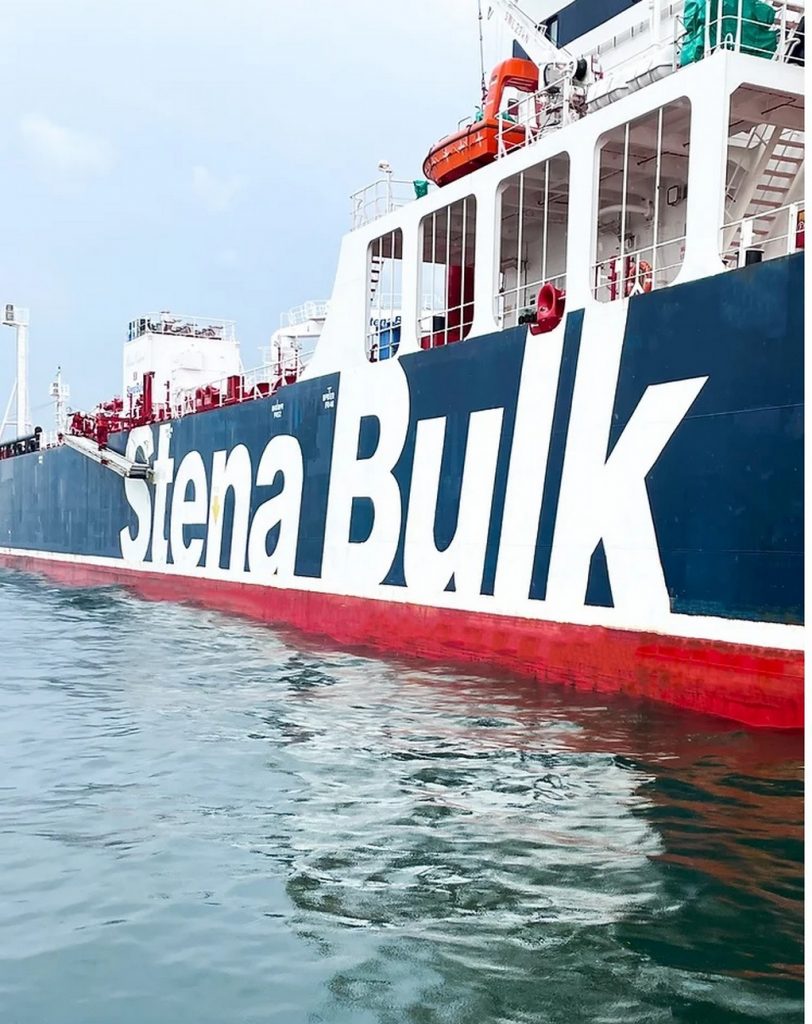A consortium of global shipping organisations and the Oil and Gas Climate Initiative (OGCI) have received approval in principle from the American Bureau of Shipping (ABS), the US ship certification agency, to use a carbon capture system onboard an oil tanker.
The project’s seven-member consortium includes the Global Centre for Maritime Decarbonisation (GCMD) in Singapore, OGCI, ABS, Stena Bulk, Alfa Laval, the Netherlands Organization for Applied Scientific Research (TNO) and Deltamarin Ltd., which provides ship services for marine and offshore industries.
The project aims to demonstrate the feasibility of using carbon capture onboard a vessel and is one of the largest of its kind. Approval in principle allows the consortium to consider whether the project will move to the next stage, which includes engineering, procurement and construction.
The global shipping industry is looking at a range of solutions, including low-carbon fuels and onboard carbon capture, to help achieve a target to halve its greenhouse gas emissions by 2050 from a baseline of 2008.
The consortium’s members believe the onboard carbon capture system could help accelerate commercial deployment of shipboard carbon capture technology within the next five years.
The two-year, three-phase demonstration project is investigating onboard capture and storage and offloading captured carbon dioxide to address the operational challenges and opportunities of deploying carbon capture technology on ships.
Following a full engineering study, the carbon capture system will be built and tested prior to integration onboard a Stena Bulk medium range (MR) tanker for sea trials. A rigorous stage gate review process will be conducted prior to progression between stages.
The consortium began the first phase of Project REMARCCABLE (Realising Maritime Carbon Capture to demonstrate the Ability to Lower Emissions) in 2022, which involved conceptual design and a front-end engineering design study of the carbon capture system.
The second phase would include engineering, procurement, and construction of a prototype shipboard carbon capture system and onshore commissioning. Phase three focuses on integrating the carbon capture system with the MR tanker and conducting sea trials.
The GCMD plans to launch a study on offloading the liquid carbon dioxide (CO2) to resolve potential challenges and inform the third phase of the project.
Tags: ABS, GCMD, OGCI, Shipping, Stena



Recent Posts
Port of Brisbane Unveils Vision 2060 to Drive Smarter, Cleaner, and More Connected Future
Wärtsilä to Deliver Hybrid Propulsion Systems for Vertom Group’s New Low-Emission Vessels
Latvian port receives electric Konecranes Gottwald Mobile Harbor Crane
Sustainable Ocean Economy Vital for Human Development, Says UNDP at UN Ocean Conference
Green Hydrogen Costs in India Could Drop by 40%, Says IEEFA-JMK Report
Cavotec Secures €1.55 Million Shore Power Contract for Port of Antwerp-Bruges
APM Terminals and SANY Marine sign landmark agreement to accelerate decarbonisation
The Port of Gothenburg takes big step towards shore power connection for container and car/RoRo vessels